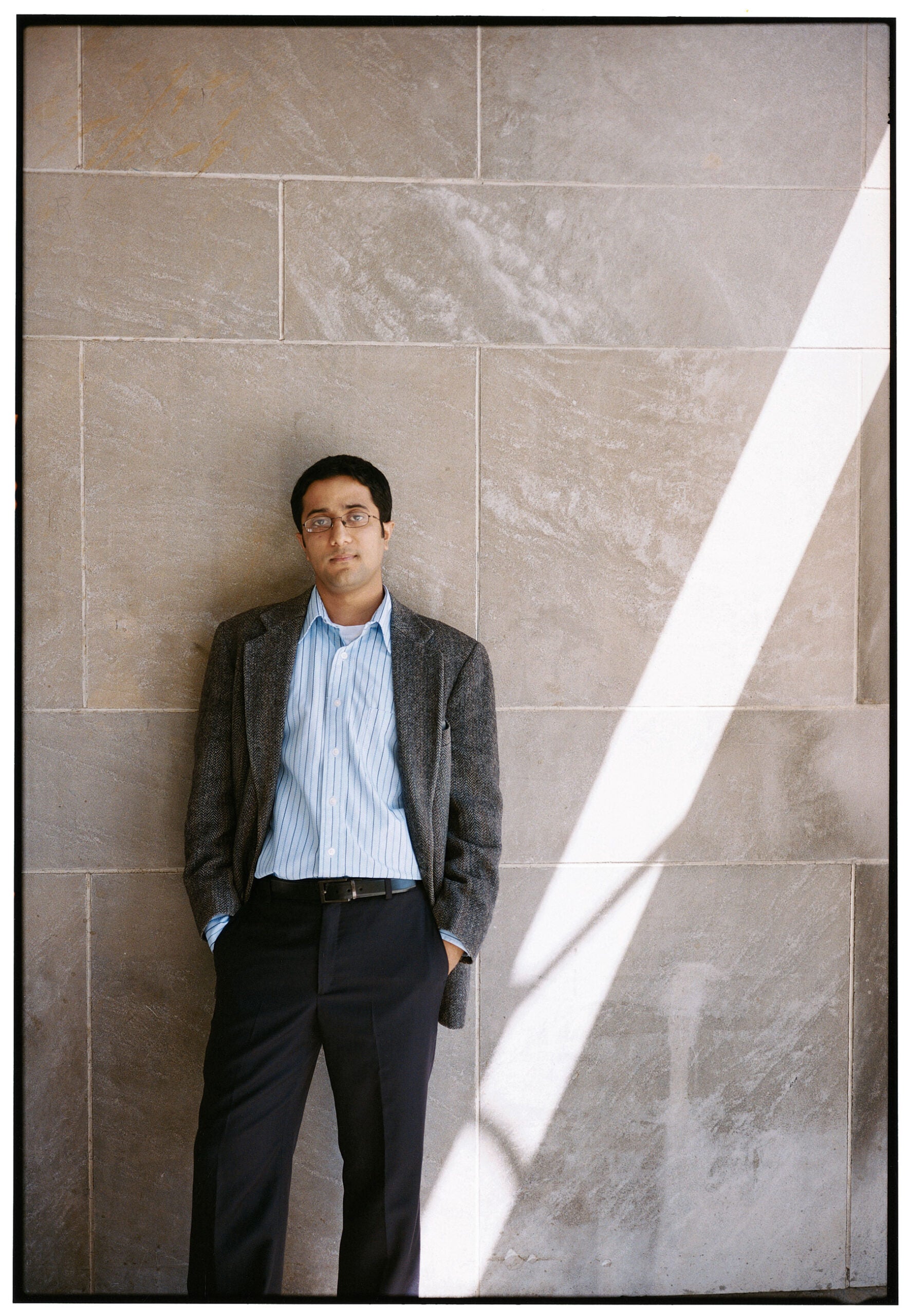When police opened fire on lawyers demonstrating peacefully at a pro-democracy rally outside the Nepal Bar Association in Kathmandu on April 13, the long-simmering crisis in the Himalayan kingdom finally grabbed the attention of the world.
But on the other side of the globe, one Harvard Law student had been watching events unfold long before they started making headlines.
Bipul Mainali LL.M. ’06, a native of Kathmandu, was waiting for word that his father and uncle—leaders of the Nepal Bar Association’s efforts to restore democracy to the country after a year of dictatorship by King Gyanendra—were not dead or injured.
Fortunately, he didn’t have long to wait. He learned that both relatives were safe. But his uncle, Mahendra, was arrested and detained with more than 60 other lawyers at a stadium in Kathmandu later the same day, then jailed for three days.
For Mainali, the pro-democracy uprising—in which the bar had played a leading role—had an impact beyond the worry it caused him for his loved ones. It was an eruption of tensions that he had been working hard to reduce in his work with the Harvard Negotiators, a student organization that is run under the auspices of the school’s Program on Negotiation.
For much of the year, Mainali and six other students had been designing a blueprint for negotiating a peaceful compromise among the monarch-dictator, the seven pro-democracy political parties in the disbanded Parliament and Maoist rebels whose 10-year struggle had cost the nation 13,000 lives. The students even managed to attract the interest of a Nepalese Cabinet minister, and they had been drafting a proposal for her at the time the violence broke out.
“The plan was to reach out to all three factions and offer them a structure for negotiating a peaceful reinstatement of democratic institutions and for addressing the concerns of the rebels,” Mainali said. His LL.M. paper, supervised by Visiting Assistant Professor Gabriella Blum LL.M. ’01 S.J.D. ’03, was also devoted to that challenge.
Gyanendra had seized control of the government in February 2005, aborting the country’s 15-year foray into parliamentary democracy, and had vowed to finish off the Maoist rebellion. He clamped down on political freedoms, suspended the constitution and consolidated his rule. But the Maoist rebels were undeterred, and pro-democracy protests sprang up in Kathmandu in April.
The ensuing crackdown left at least 14 dead and hundreds more wounded. Palace control of media outlets and restrictions on international monitors made it difficult to know the full scope of the protests and repression. But tear gas, truncheons, rubber bullets and live ammunition were, by all reports, standing in for Nepal’s suspended constitution.
By the end of April, the king agreed—under internal and international pressure—to reinstate Parliament and the constitution. But many important questions remain to be negotiated between the Maoists and the elected government.
Mainali and his fellow Harvard Negotiators were hopeful that the factions in Nepal would now be even more receptive to a blueprint for negotiation.
“The announcement that Parliament would be reinstated didn’t end the crisis but transformed it,” said Robert Bordone ’97, HLS assistant clinical professor and director of the school’s Negotiation and Mediation Clinical Program. Bordone was supervising Mainali and other student negotiators at the time of the crisis. “The students on the Nepal Team of Harvard Negotiators can still be helpful in this highly fluid situation. They now have direct contacts with Nepalese officials,” he said.
To succeed, experts agree, any negotiations will have to tackle the thorny question of Nepal’s entrenched caste system. There, as in India, more than 20 percent of the population are Dalits—the so-called “untouchables” of Hindu society—whose lives are marked by dehumanization, landlessness and extreme poverty, says Smita Narula ’97, co-director of the Center for Human Rights and Global Justice at the New York University School of Law.
Narula questions whether democracy in Nepal ever really existed. She sees the year of the king’s dictatorship and the ongoing civil war through the broader perspective of caste discrimination. When “democracy” came to Nepal in 1990, it—like the rest of 2,000 years of Hindu history—passed Dalits by, she says.
If democracy is going to have a future in Nepal, Narula argues, a first step must be an end to untouchability.
Meanwhile, Mainali, who is believed to be only the third person from Nepal ever to study for a degree at Harvard Law School, plans to involve himself in negotiating solutions.
“I was told that when lawyers in Kathmandu heard that I was headed for Harvard Law School, it was a very big deal,” he said. “There is such a special respect for Harvard there and so much hope that goes with that. They expect me to come back and make a contribution.”
Mark West, a writer and lawyer who has worked in Nepal, was in Kathmandu when the king seized control of the government last year, and contributed reporting for this story.
